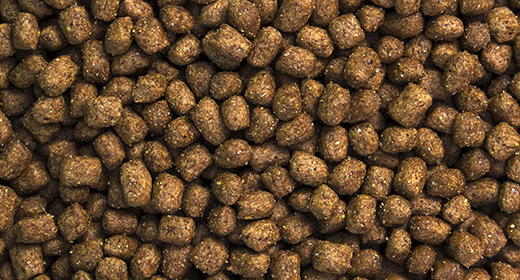

Picking the right food for your pup is key to ensuring its healthy growth. While both puppy food and adult dog food seem similar, they serve different nutritional purposes tailored to distinct life stages. Understanding this disparity is vital in guaranteeing the overall well-being of your beloved companion.
Puppies are more than just mini versions of adult dogs. Their nutritional needs are unique and crucial for their growth spurt and cognitive development. Specifically designed with the perfect blend of proteins, fats, vitamins, and minerals, puppy food supports bone and muscle growth. With their endless energy, they need the extra calories that puppy food provides. Plus, the added dose of nutrients like calcium and phosphorus is essential for strong bone development. So, stick to puppy food until your furball hits full physical maturity, ensuring a strong and healthy foundation for their adult life.
When a puppy can eat adult dog food isn't a one-size-fits-all deal. It is a gradual process that demands attention to your dog's unique traits. Generally, it is wise to make the switch when your pooch is about 80-90% of its expected adult size. But remember, a sudden change can upset their tummy.
To ease the shift, start by mixing small portions of adult food with their usual puppy fare. Over a week or two, increase the adult food ratio until your dog is entirely comfortable with the new diet. Don't forget to consult your vet to ensure a smooth transition and a lifelong, balanced diet for your four-legged friend.
When figuring out when to transfer to adult dog food, the size of your growing dog plays a crucial role. Given below is a comprehensive guide:
At IAMS, we offer a range of adult dog food that are rich in nutrients like protein, vitamins, minerals and more to provide your pooch with a complete and balanced meal. We have specialised recipes for each breed, targeting the specific nutritional needs of small, medium, and large sized dogs.
As your canine companion transitions from the puppy stage to adulthood, providing it with an appropriate diet becomes crucial for its long-term health and well-being. Adult dog food serves as a vital component in ensuring that your dog receives the necessary nutrients to maintain optimal health and vitality. Here are some key reasons why adult dog food is essential for your furry friend's overall wellness:
So, as your dog grows, make sure its diet grows as well. With the right adult dog food, tailored to its needs, you are laying the foundation for a life full of tail wags and playful barks.
Transitioning your furry friend from puppy to adult dog food is not just about changing what is in the bowl; it is a gradual adjustment that involves considering evolving nutritional needs, portion sizes, meal frequencies, and more. Here is a structured guide to help you ease your pup into their new diet over a 10-day period:
Start by mixing 75% of the puppy food with 25% of the new adult dog food. This allows your pup to get accustomed to the new flavours and textures while maintaining some familiarity with the old food.
Increase the proportion of adult dog food to 50% while decreasing the puppy food to 50%. This step continues the gradual transition, helping your dog's digestive system adapt to the new food without causing any sudden upsets.
Continue the transition by serving 75% of the new adult dog food mixed with 25% of the remaining puppy food. This step allows their taste buds to fully adjust to the new diet while ensuring a smooth transition without any digestive disturbances.
By this point, your pup should be ready to completely switch to adult dog food. Serve only the new adult dog food, ensuring that the portion size is appropriate for its age, size, and activity level. Maintain the recommended feeding schedule based on specific dietary needs.
Throughout the transition period, closely monitor your dog's eating habits, energy levels, and overall well-being. If you notice any digestive issues or reluctance to eat, slow down the process and give it more time to adjust. Providing plenty of fresh water and sticking to a consistent feeding schedule will help make the transition as smooth as possible for your beloved canine companion.
Remember, a smooth transition from puppy to adult dog food is all about taking it slow and steady. By gradually introducing the new food over a 10-day period, you give your pup's digestive system the time it needs to adjust without causing any discomfort. Keep a close eye on its response throughout the process, and do not hesitate to make adjustments if necessary. With patience and careful monitoring, you can ensure that your loyal companion makes a seamless shift to their new, adult-dog-friendly diet.
Puppies should not eat adult dog food as it lacks essential nutrients for their growth. Choose puppy-specific food until adulthood.
A 5-month-old puppy should eat high-quality puppy food rich in protein and essential nutrients, promoting healthy growth and development.
Dogs are typically considered puppies from birth to one year, although this can vary based on breed size.
The right age to switch your pooch from puppy food to adult dog food can vary basis multiple factors. However, here’s how these furry beings are generally switched to adult dog food basis their breed size.
Breed Size | Age |
Small | 9 to 12 months old |
Medium | 10 to 12 months old |
Large | 12 to 16 months old |
Giant | 18 to 24 months old |


When it comes to maintaining the overall health of our dogs, we often overlook the importance of their gut health. This is where canine probiotics and prebiotics come into play. These are beneficial microbes that reside in your dog's gastrointestinal system, aiding in food digestion, fighting off potential pathogens, and bolstering the immune system.
Probiotics for dogs, derived from the Latin word 'for' (pro) and the Greek 'life' (bio), are friendly bacteria and yeasts that are essential for your dog's health. They are designed to restore and maintain a healthy balance of microflora in your dog's gut. The types of bacteria usually found in canine probiotics include:
Prebiotics may sound like the opposite of probiotics, but in reality, the two go hand in hand. Prebiotics are nutrients that nourish and promote the growth of these good bacteria already living in the colon. They are essential in ensuring that probiotics function at their optimal best.
Probiotics are a necessary addition to a dog’s diet. Here are a few benefits of this nutrient:
They are generally used when the balance of microbes in a dog's gut gets disrupted due to stress, dietary changes, or antibiotic use, leading to health problems including digestive upsets.
Probiotics for dogs have been shown to help manage diarrhoea and improve gut health. They work by restoring the balance of good bacteria in your dog's gut, which can be disrupted due to various factors.
The benefits of probiotics for dogs extend beyond just good gut health. They can also aid in reducing the need for antibiotic treatment and shorten the duration of diarrhoea. In fact, a 2009 Irish study found that supplementation with a specific strain of Bifidobacterium Animalis reduced diarrhoea duration from seven to four days.
The answer is yes. Puppies can benefit from dog-specific probiotics. These can help them develop a balanced intestinal bacteria ecosystem, support a healthy immune system, and reduce the occurrence of diarrhoea, constipation, and infections of the digestive tract.
Yes, it's critical to consult your vet before introducing probiotics or prebiotics for dogs into your pet's diet. There are many probiotic preparations out there, and not all of them are of high quality and backed up with evidence. Your vet will be able to advise the best option for your dog.
As the importance of gut health in dogs becomes more recognised, various supplements containing canine probiotics have emerged. One such supplement is our IAMS™ Proactive Health™ Digestive Health Supplement. This soft-chew food supplement is a blend of prebiotics and probiotics that ensures healthy digestion.
If your dog has been experiencing signs like diarrhoea, constipation, bloating, or vomiting, it might indicate that their digestive system is not functioning properly. In this case, a probiotic supplement with Bacillus Subtilis and Fructooligosaccharide can be a good investment. They help degrade organic matter in the feces, reducing ammonia production and fecal odour as well as nourish the good bacteria in the colon of the dog.
The benefits of probiotics for dogs are substantial. They help maintain a healthy gut, which plays a vital role in your dog's overall health. By incorporating probiotics into your dog's diet, you're taking a step towards ensuring that your furry friend leads a healthier, happier life.